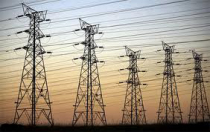Water Heaters and Title 24
Gas or Electric?
By a sizeable majority, most households in the U.S. use natural gas to heat water. Other fuel types used to heat water include electricity, propane, and heating oil. A typical gas storage water heater has an Energy Factor (efficiency rating) of about 0.62, while a typical electric storage water heater will be rated about 0.93. Based on these Energy Factors it would seem an electric water heater uses less energy. Actually the opposite may be true, here's why:
Source Energy
It takes about three times as much source energy (this includes the energy needed to generate and distribute a fuel) to deliver electricity to a home compared to natural gas. This is because only about 1/3 of the fuel energy burned at the utility's power plant actually reaches a home in the form of electricity. The rest is lost due to inefficiency at the power plant and over power lines. Therefore, an electric water heater that appears to be 50% “better” than a gas one (0.93 Energy Factor versus 0.62 Energy Factor) actually uses much more (source) energy than the gas water heater. It is for this reason that when performance modeling a new electric water heater for Title 24 compliance there is a significant penalty. That said, an electric heat-pump storage water heater will not incur this penalty due to its energy efficient design utilizing heat-pump technology.
More information on:
Storage Water Heaters | Tankless Water Heaters

